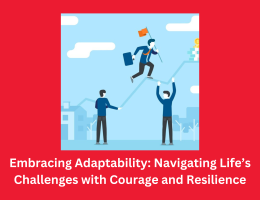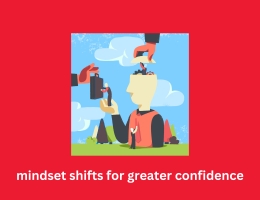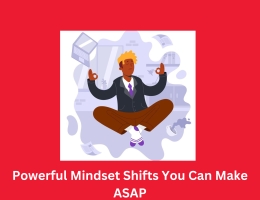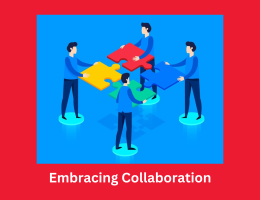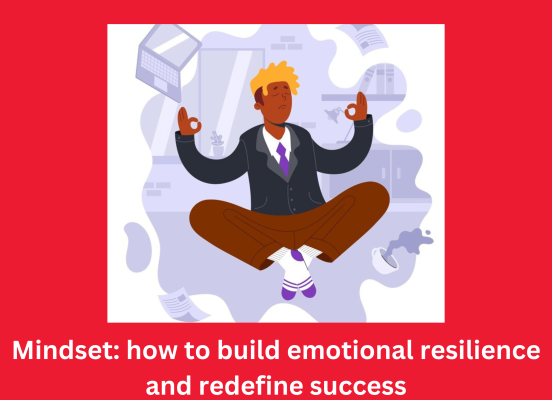
Mindset: how to build emotional resilience and redefine success
- By admin --
- Wednesday, 29 May, 2024
How do you define success?
Rather than considering the time and work it took them to get there, we frequently associate success with the things that people have accomplished. This limits our understanding of their success because many of these individuals failed at least once before getting to the stage where they succeeded.nnFor example, did you know that Einstein failed the entrance exam to get into university and that Michael Jordan didn’t make his high school basketball team? Think of how far they came to get the success that they are renowned for today.
Fixed and growth mindsets
The differences between focusing on effort and focusing on achievement to define success map onto two mindsets defined by Carol Dweck.
People with a fixed mindset think that skills are set from an early age, that they are innate and people are “naturals”. Success is believed to be the affirmation of natural ability, while failure is the affirmation of a lack of natural ability.
People with a growth mindset believe that we can develop skills, and that we all have the ability to improve and develop if we put the effort in. Both success and failure are taken as opportunities to learn.
While we tend to fall more into one of the two camps, in reality it’s a spectrum. We may have a fixed mindsets about certain aspects of our lives – for example believing that we are “No good at maths” or “not at all creative” The goal is to develop your growth mindset in all areas of your life.
Why should we aim to have a growth mindset?
Personal implications
Although fixed mindsets can result in success in the short run, they eventually lead to poor mental health, limited growth, and a stagnation of interest. This is because reluctance to try anything that may not be part of individuals’ ‘natural’ ability will not encourage them to seek new opportunities, which will impact both their personal and professional lives. When things don't work out, people with fixed mindsets are more prone to quit up and take failure personally, which can have a negative effect on their emotional well-being.
In contrast, growth mindsets require curiosity, which will encourage people to seek opportunities for growth and lead to better mental health. This will increase employment options, strengthen fortitude in the face of adversity, and make it easier to draw motivation and learning from the achievements of others.
Carol Dweck’s studies show the positive effects of a growth mindset. Two groups of children were given the same problem solving task – one group was praised on how hard they had worked on the task, the other on their intelligence. Those praised on intelligence showed fixed mindset characteristics like choosing to stick with easier tasks. The growth mindset traits of those who received praise for their effort included choosing to take on more challenging problem-solving activities, reporting greater enjoyment from the task, performing better in subsequent tasks, and asked for feedback.nnBusiness implications
It is also important for businesses to think about developing a growth mindset as part of their culture. This creates more empowered and engaged teams who are motivated to grow both themselves and the company. According to research, staff members at businesses with a growth mentality are more likely to believe that the organization values creativity and to have a strong sense of dedication and ownership to the company.nnBusinesses with a primarily fixed organisational culture experience more cheating and deception within teams to get ahead in the ‘talent race.’
How can we develop a growth mindset?
The good news is that we can choose to put ourselves into more of a growth mindset. The first step is being aware and recognising your own mindset. Here are three ways to move yourself towards a growth mindset.
1. Identify in which areas of your life you have fixed mindset triggers.
This will enable us to identify times when we are slipping into that frame of mind and devise strategies for overcoming these assumptions. Some ways to start thinking about this:
- Do you do things because you think you are ‘naturally’ good at them?
- How recently did you acquire a new skill? Was this for your new pastime or for your job? Which skills would you find valuable in your current role?
- Do you seek new opportunities in your professional and personal lives? Is there one area of your life where you are less likely to take risks and could work on growing your mindset?
2. Rethink what success means to you: replace achievement with effort.
Just as shifting the emphasis of praise from achievement to effort has drastic effects on the mindsets of children, learning to value the process over the end result can grow our mindset.
Some ways to start doing this:
- Ask for feedback and look at ways to improve
- If something doesn’t work out the way you had planned, consider the lessons you learned and make a note of them.
- Invest time to research and learn a new skill
3. Pay attention to your self talk
The way we speak to ourselves has a huge influence on our mindset. Listen to what you say to yourself – are you saying fixed mindset statements like “I can’t do that” or “I don’t know how to do that”, if so make a note of these and see if you can challenge them. We will be exploring self talk further in our next blog post and sharing tips for how you can get in control of your own self talk.

